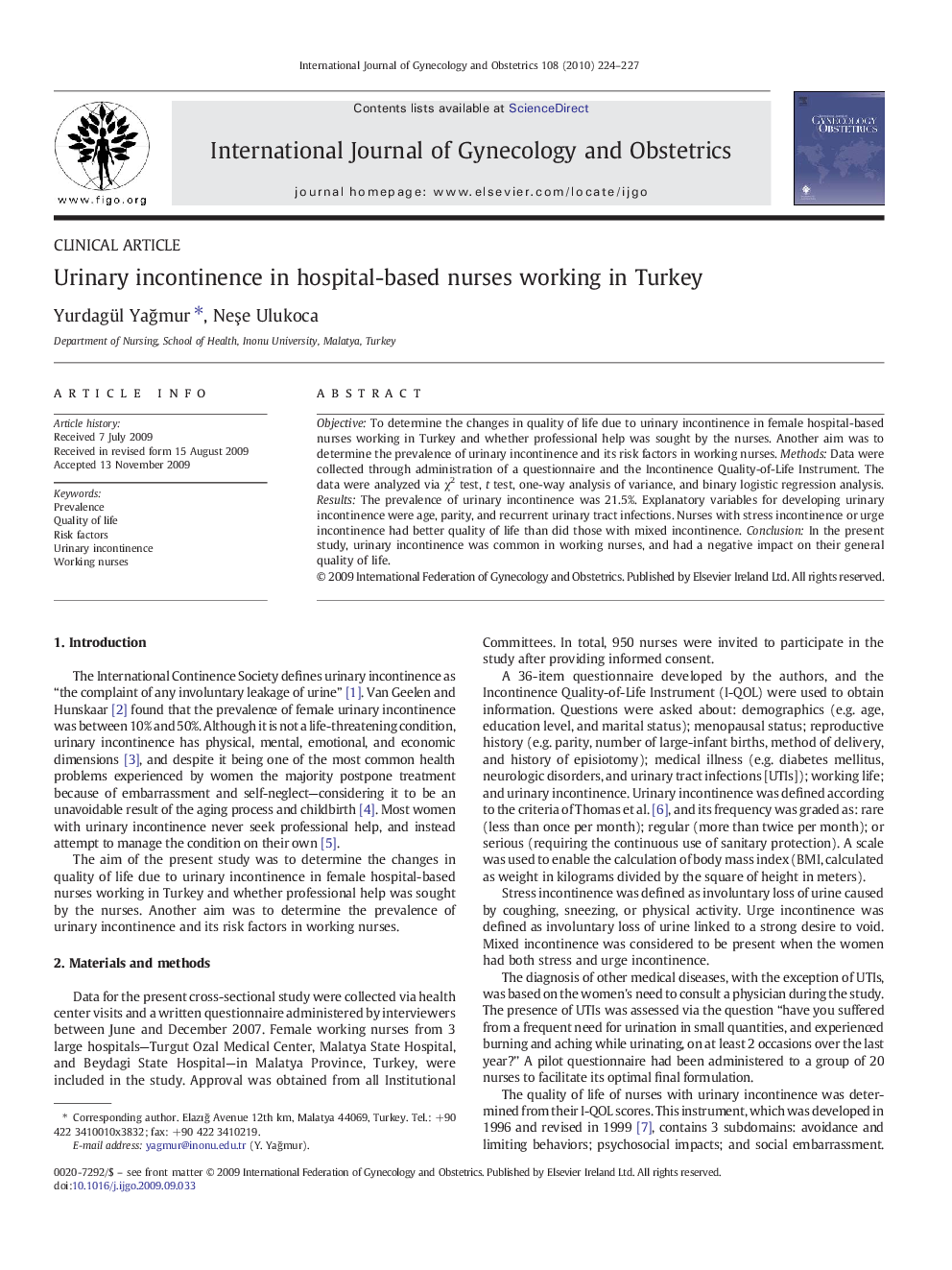| Article ID | Journal | Published Year | Pages | File Type |
|---|---|---|---|---|
| 3949932 | International Journal of Gynecology & Obstetrics | 2010 | 4 Pages |
ObjectiveTo determine the changes in quality of life due to urinary incontinence in female hospital-based nurses working in Turkey and whether professional help was sought by the nurses. Another aim was to determine the prevalence of urinary incontinence and its risk factors in working nurses.MethodsData were collected through administration of a questionnaire and the Incontinence Quality-of-Life Instrument. The data were analyzed via χ2 test, t test, one-way analysis of variance, and binary logistic regression analysis.ResultsThe prevalence of urinary incontinence was 21.5%. Explanatory variables for developing urinary incontinence were age, parity, and recurrent urinary tract infections. Nurses with stress incontinence or urge incontinence had better quality of life than did those with mixed incontinence.ConclusionIn the present study, urinary incontinence was common in working nurses, and had a negative impact on their general quality of life.
